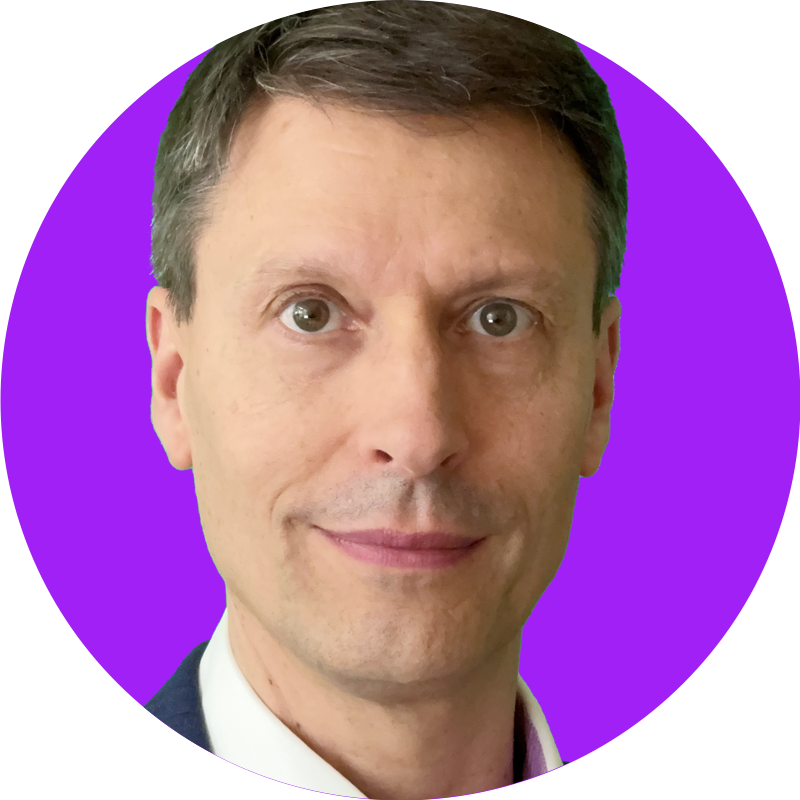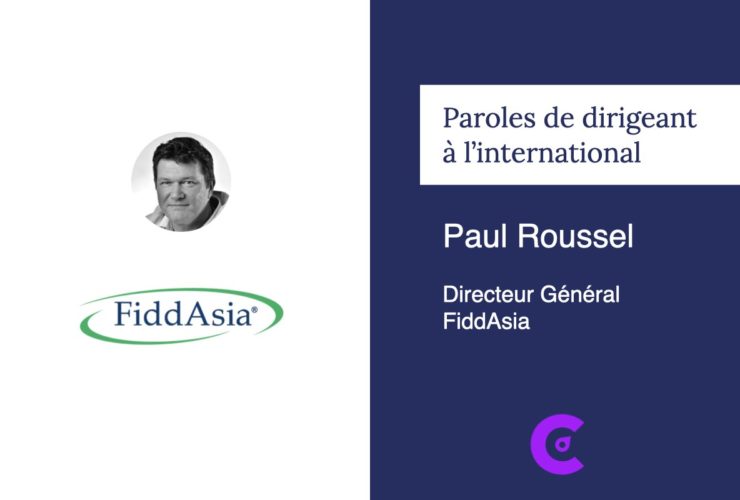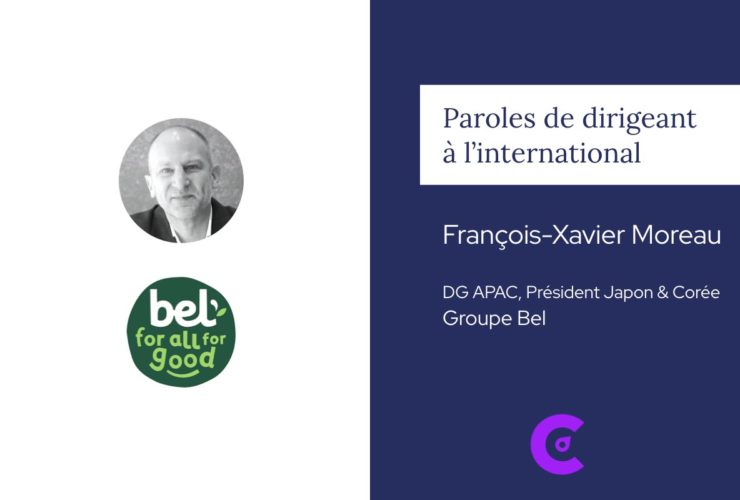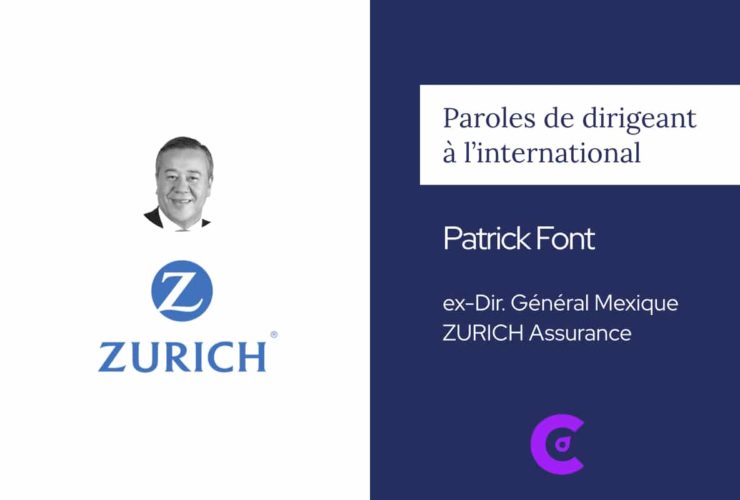International Executive are speaking
The keys to business success in Russia & CIS
Frédéric Capellier, Managing Director, TKM international Consulting
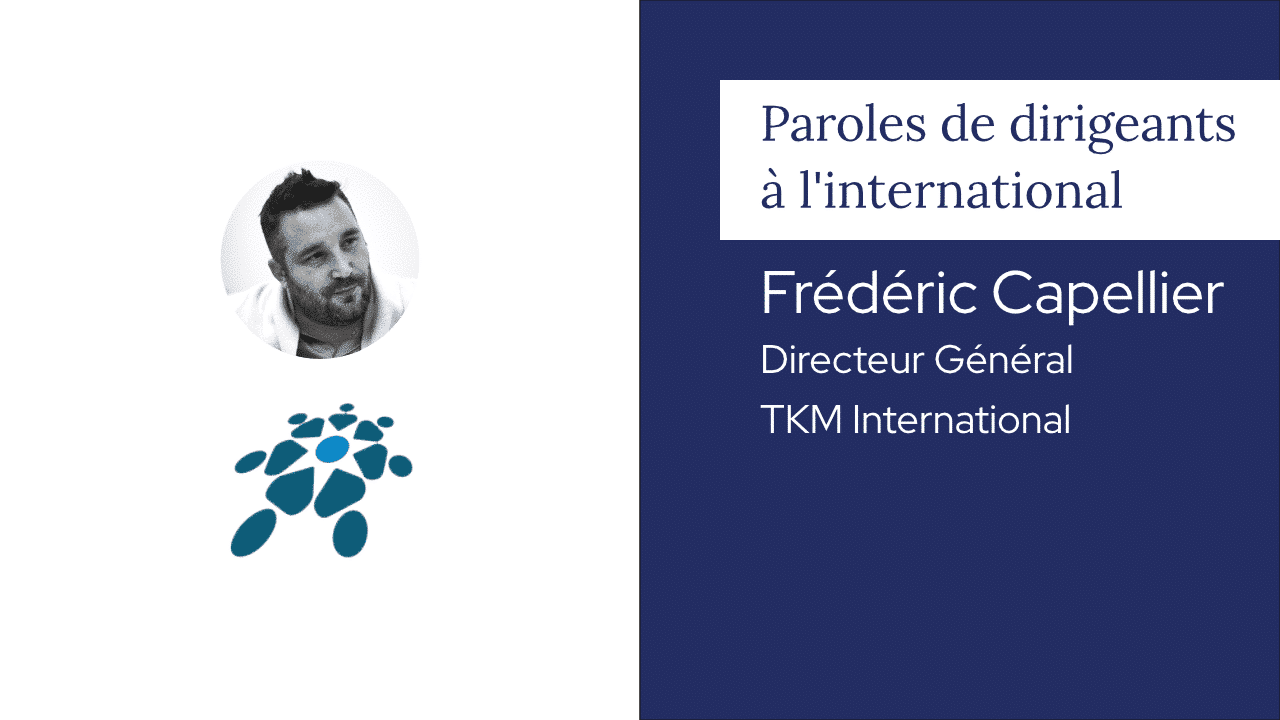
© Photo : Mathieu Richard
“Get ready to board this highspeed train”
Frédéric Capellier has lived in Russia for 12 years. He began his career as a police officer in France, before coming to Russia. Initially he worked as a liaison officer and subsequently opened his own anti-counterfeiting company.
Some facts
1998 : DCPJ investigator – Ministry of the Interior – Nanterre
2008 : Liaison officer French Embassy in Russia
2014 : Executive Director of Operations – Opim International Consulting
2015 : Managing Director TKM International Consulting
2019 : 55 employees
Mail : f.capellier@tkm-ic.com
Interview conducted by Antoine Leygonie-Fialko
Open dialogue followed by an Executive Coaching session
using CO-CREATIVE Communication®.
When I met Frédéric two years ago. I was immediately struck by his energy and determination to develop his business. Here he reveals the secret to its rapid growth…
« We anticipate the challenges that the Eurasiatic Union poses »
Frédéric how did you decide to stay in Russia?
I first came to Russia 12 years ago to serve as Police Liaison Officer at the French embassy. At the time, my vision of Russia was more empirical and even romantic than practical. I had to quickly cross the line between natural attraction and professional efficiency, especially in the linguistic field. Initially, I was responsible for liaising between the French judicial police and the Russian agencies. Then I dealt with everything from immigration to security issues. Finally, I also assisted my colleagues to organize official trips.
After 6 years, when the question of staying on came up, I realized that I hadn’t built anything yet. I wanted to put my experience to good use. As luck would have it the producer of a well-known French spirits brand was seeking a service provider in Russia to help combat counterfeiting. I started by looking for one. And it finally turned out that it was me they wanted. This is how I got started.
What service do you offer?
We have always developed our business by adapting to the market and anticipating the needs of our customers. We started as an offline brain protection specialist working with many local law enforcement agencies over a big area. Today we can see that the service has evolved a lot. We work on the protection of online brands and we offer all the legal support that goes into that (legal action, collection, monitoring of court judgments, monitoring of trials, etc.). In parallel to that, we register the brands at the customs registries and we train the law enforcement agencies.
Current developments have gradually led us to offer additional services such as the legal verification of suppliers, customers, and partners. This in compliance with the Sapin 2 law that applies to all French companies operating abroad. At present, we are developing our due diligence expertise to meet the demand of our customers.
How did you put together your team?
I initially started out on my own. Then my experience in Russian led me to become selective in my choice of team members. The recruitment of local, competent, and reliable staff has always been a priority. So I have identified and hired proven professionals: operational staff, lawyers, trainers, and finally sales and customer representatives.
Who are your clients?
Our customers operate in the luxury goods sector (alcohol, perfume, cosmetics, watches, jewelry, clothing, etc.) and industry, especially the pharmaceutical industry, because public health has become one of the government’s top priorities. Counterfeiting in all of these areas is a real problem.
In which territories do you operate?
We cover Russia from our base in Moscow and we planning to open an office in St. Petersburg this year. In order to effectively meet our customers’ expectations, we have anticipated the challenges that the Eurasian Union presents by opening offices in Kazakhstan (Almaty), Armenia (Yerevan), Kyrgyzstan (Bishkek), and Belarus (plannedfor2020). We are also present in Ukraine (Odesa and Kyiv) and in Dagestan. Our office in Makhachkala has shown that results can be achieved in a city with an infamous reputation. Finally, we also cover Azerbaijan and Uzbekistan remotely.
Our strategy is based on our past experience, the analyses of our experts, and the requests expressed by our customers. We are forging ahead with humility whilst retaining our determination.
What a great development! What is your goal at present?
Our company is growing. We are preparing to become more corporate by standardizing the way we work. Our 5-year goal is to have at least 100 employees spread across the region. We are also looking at new territories such as the Baltic states, Moldova as well as China, which are all looking for lasting solutions in their fight against counterfeiting.
We are currently optimizing our legal structure by opening representative offices in each country. I’m even considering opening an office in Paris by 2021.
To reach your goal, what difficulties will you have to face?
A society like ours is subject to external uncertainties. Political shifts are a factor one should take into account. Fluctuations in the value of the ruble in particular have a direct impact on our functioning. Our clients are in Europe and pay in euros while we pay everything in rubles. In this line of business, I need stable exchange rates.
Not being sufficiently acquainted with the cultures of each country is a second obstacle. Today, having lived 11 years in Russia, I speak Russian, but I still cannot claim to know the Russian mentality one hundred percent. This is what makes this country and culture so charming. When I go to Kazakhstan for example, it’s still a complete unknown for me. I have to rely on people I trust, who open the doors and help me decipher things.
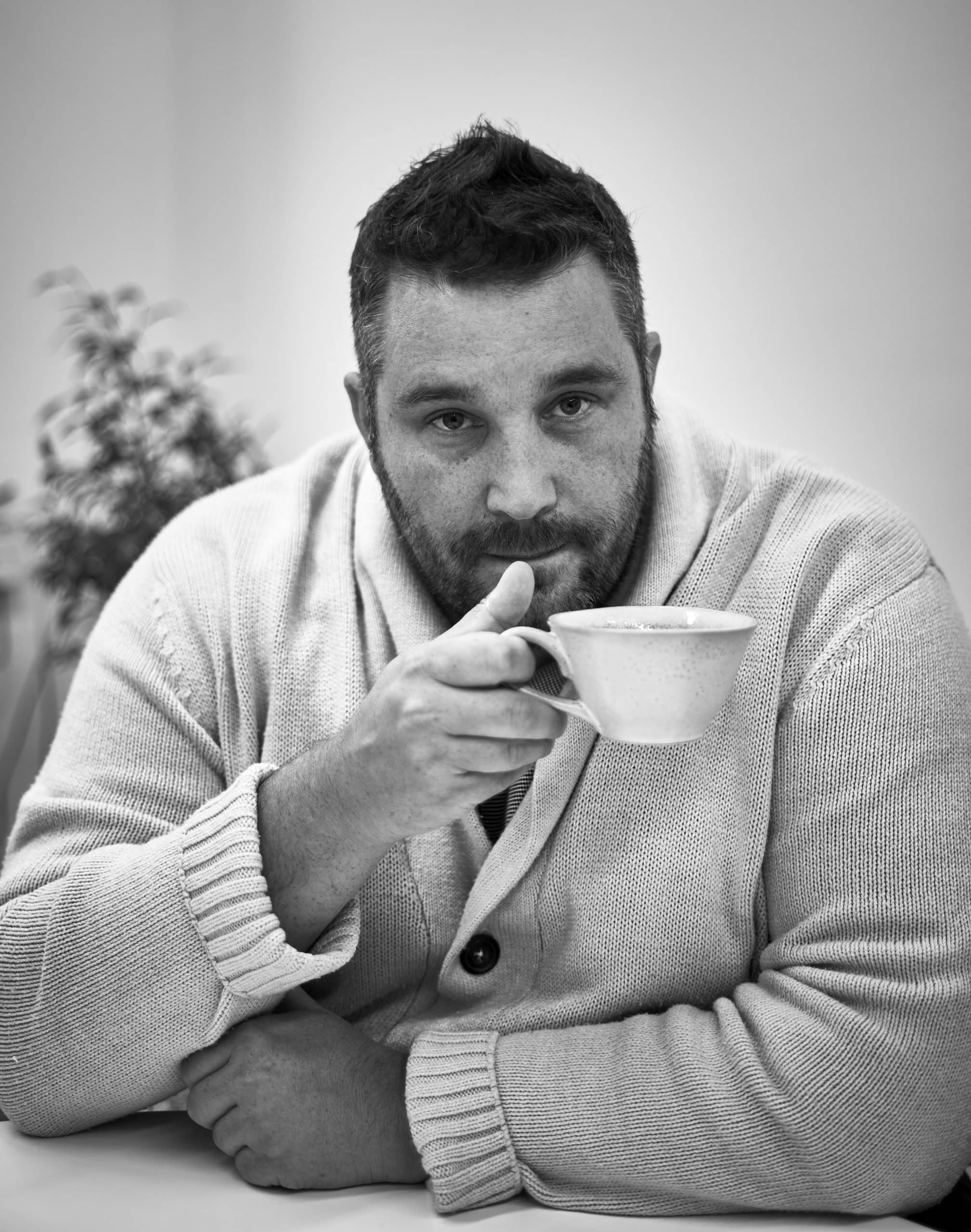
© Photo : Mathieu Richard
« We always tell the client the truth »
Frédéric what tools and systems have you put in place in order to unite and motivate your multicultural teams?
To help our teams that have very different mentalities to work together, we have implemented common online tools, such as the reporting part. We create a real entrepreneurial spirit by welcoming people for training in Moscow lasting 3 to 6 months, all depending on the complexity of the country in which they are going to be working. It allows them to soak up things, bond, and understand how we work. They return home very motivated.
How do you face competition in this market?
We have different types of competitors. Some have offers that are not suited for the rapidly evolving situation in Russia. They are losing momentum. Others have successfully upgraded their offerings. We are always trying to be one step ahead of them. We are constantly creating new tools, we offer tailor-made programs for a specific customer need, we offer dedicated teams. In the end, our services are not the cheapest, but we are really very efficient. Above all, where others make empty promises, we are reliable and transparent. When something seems impossible we try to see how to make it possible. But whatever the situation, we always tell the client the truth.
Frédéric, how did you anticipate the impact of Covid-19 on your activity?
Informed mainly by French government communications before my return to Russia, I did not realize the seriousness of the health crisis until late (around March 10). I asked my managers to strictly observe the instructions imposed by the Moscow city hall and the government (temperature control for all staff, respect for quarantine for the employees concerned, myself included…). We also ensured that our teams are protected at the workplace (provision of gel, masks, and gloves).
From the announcement of the first week of paid leave, we felt a loosening among some employees. For example, I had to separate from one of them to “re-motivate” the others. The idea was to make everyone understand that there was nothing to be happy about and that, on the contrary, we had to redouble our efforts. The result matches my expectations.
In terms of budget, I revised some of our projects downward, postponed certain non-essential expenses, and estimated our cash flow to be able to hold out as long as possible in downgraded mode. These measures gave me a precise vision of our capacities to face.
What are the missions of your teams during confinement?
From a purely operational point of view, our activity has not decreased, on the contrary. The increase in alcohol consumption, in particular, is accompanied by an increase in counterfeit products. Our teams, therefore, remain very mobilized. Judicially the activity continues and we participate in numerous trials in delocalized mode.
At the commercial level, we have materialized several prospects. These new customers allow us to put into perspective the negative effects of the coming economic crisis. We adopt our offer to the situation and above all, we are fervently preparing for the end of the crisis. We are also working on our contract form to concretely integrate pandemic risk.
In general, teams are taking advantage of this slowdown to update what needs to be updated. Videoconferences replaced daily meetings. Finally, the pace of work and production has changed very little. I even think of setting up teleworking possibilities for some employees as soon as the activity resumes.
In terms of financial management, we check every day whether the state measures concern us. We are trying to renegotiate with our suppliers. To better daily management, I had a cash budget established which allows me to have a realistic dashboard.
Tell me, Frédéric, what are your concerns?
First of all, I am worried about the exchange rate which is essential for the financial health of my business. Then my main anxiety concerns the time it takes to collect invoices because it is essential to bring in “cash” while preserving the customer relationship. Of a rather optimistic nature, I hope that the action of governments and central banks will be effective and will avoid the worst.
How do you see the world after the pandemic?
The post-pandemic will mark the resumption of economic activity. We will then know what type of crisis we are headed for (long, intense, moderate, controllable, etc.). It will be time to change the wing to take advantage of the slightest draft.
I already think of reducing my business trips to the essentials and perhaps checking the sanitary capacities of the holiday resorts that I might have to choose.
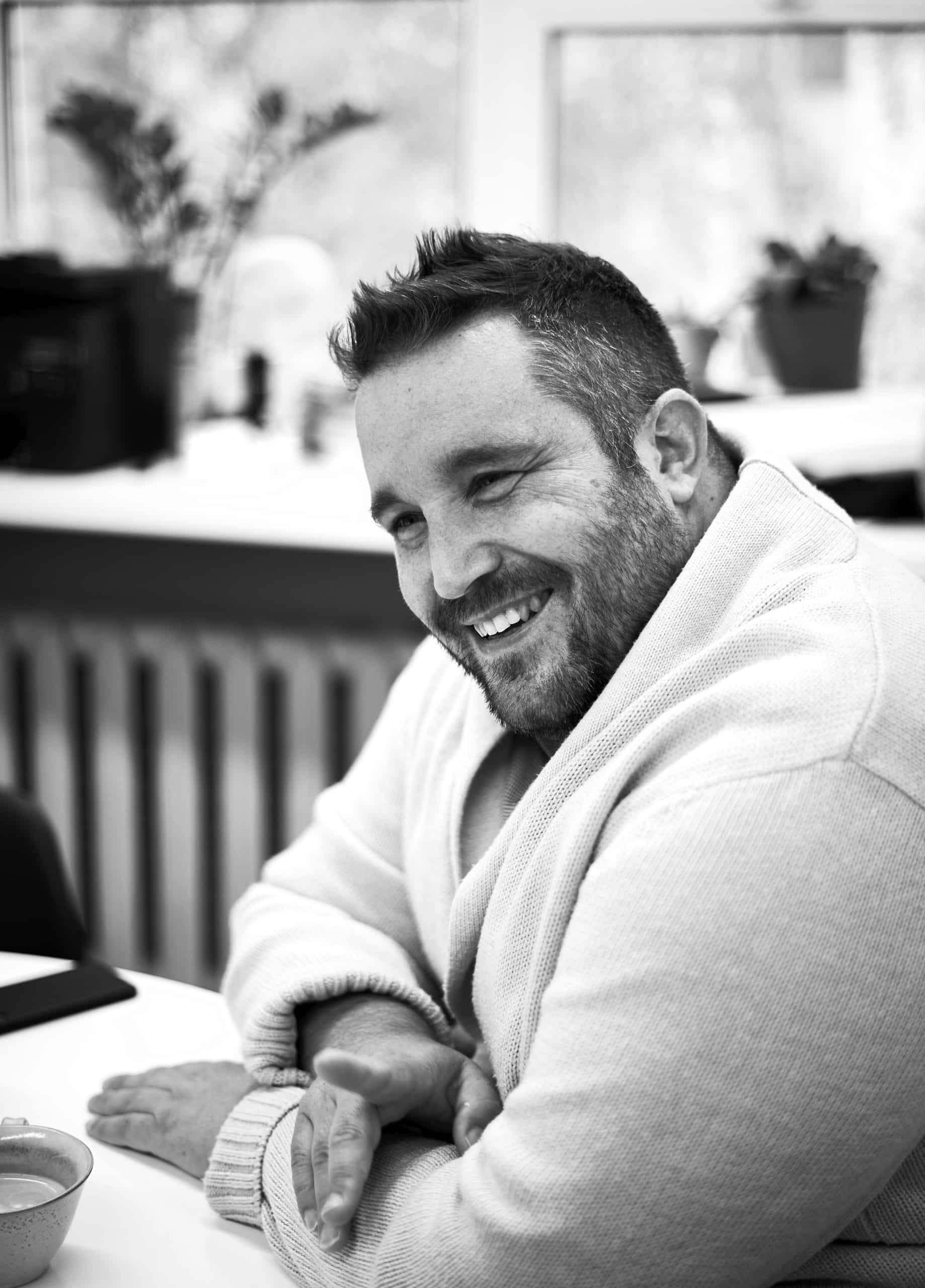
© Photo : Mathieu Richard
« Don’t introduce your own rules in another’s monastery »
Frédéric what would you say to a Frenchman who is coming to Russia to do business?
The history of Russia and France makes me think of the story of an old couple who repeatedly split up end get back together. Today the two countries are on a second honeymoon as it were.
I would advise French people coming to Moscow to take full advantage of this new environment conducive for business, by guarding against feeling superior towards Russians. Here as anywhere else, you should not try to impose your French ideas. I would advise people to adapt to the culture, to speak the language, and to come without preconceptions. As the old Russian proverb goes: “don’t introduce your own rules in another’s monastery.”
What qualities are necessary to develop a business here?
The quality that’s most needed is the ABILITY TO ADAPT and the ability not to judge, neither the mindset, nor the people, nor the things. When I arrived in Russia, I found it unbearable that no one held the door for me or that the waiter removed my plate the moment I had finished. I have now become pretty used to this: I do not hold the door for others and in France, I can no longer stand the sight of an empty plate in front of me.
Furthermore, as the pace of life in Moscow is very fast, you have to KNOW how to chill out after a hectic day dealing with unexpected matters, so as to be able to start afresh the next day. Having got used to this way of life, I go to the datcha on weekends, and I visit the banya with friends whenever possible.
Finally, we must try to DISCOVER CULTURE and HUMOR. The first time I understood a comedy sketch in Russian, I understood that I had passed a milestone.
How do you find the Russian sense of humor?
Russian humor is politically incorrect. You can get to know the culture, have a drink, eat Russian cuisine, go to the banya, but that is all on the surface. When we get into the humor when we understand what the Russians mean behind the facade, and especially when it makes us laugh, we turn a corner and we really take ownership of Russian culture.
Frédéric, any last advice for a newcomer?
“Get to work! Russia is a fast-moving country. Get ready to board this high-speed train! We don’t know where we’re going but we’re going!”
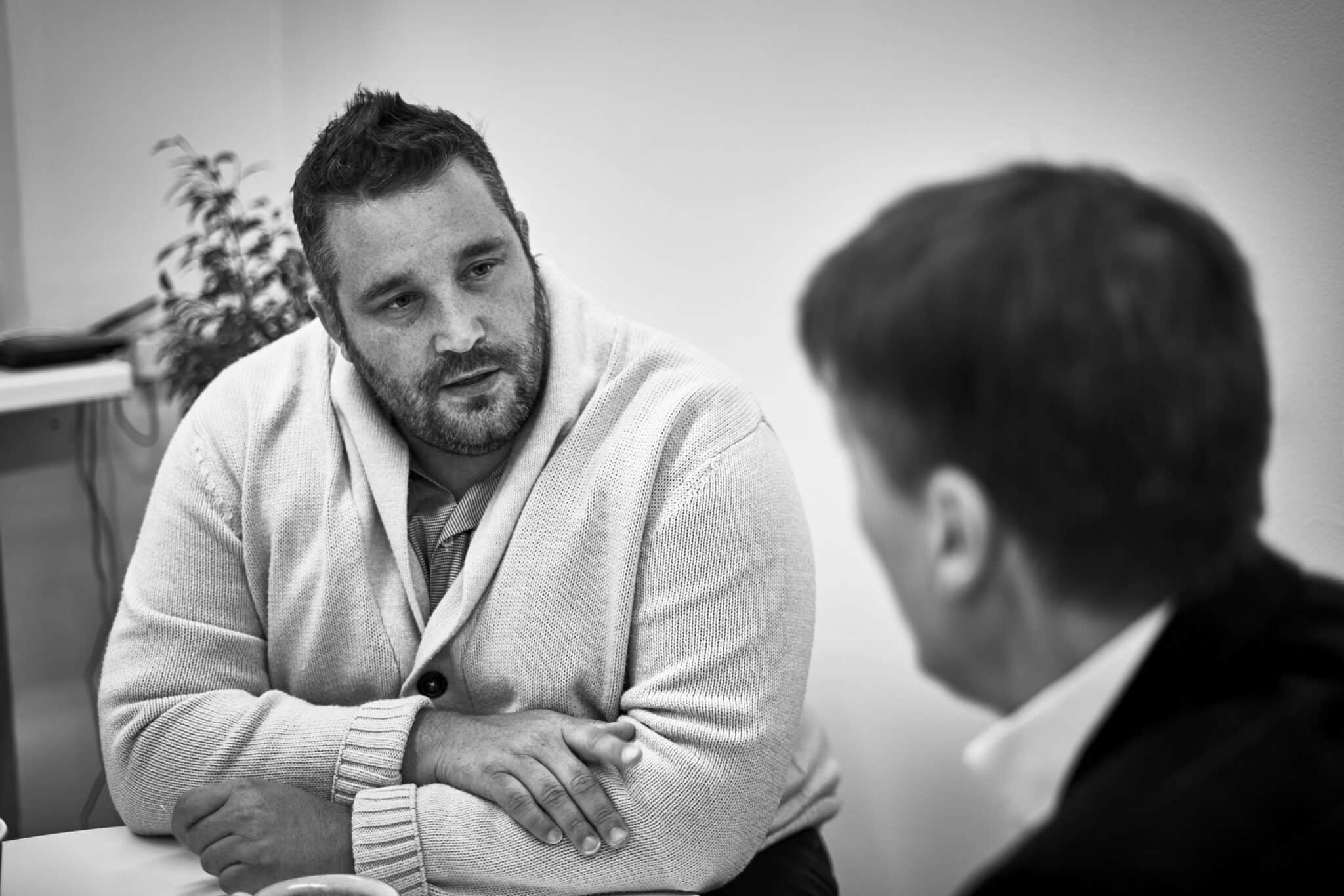
© Photo : Mathieu Richard
A Look back at an Executive Coaching session dealing with an organizational issue …
Frédéric, a word about our Executive Coaching sessions?
The coaching session made me realize that I have the solutions in me. I just need to crystallize them. With your global vision, you allowed me to resolve issues that seemed insurmountable… A big thank you, Antoine!
Interview conducted by Antoine Leygonie-Fialko, translated by CREF.
International Executive Coach and Consultant Antoine Leygonie-Fialko is an International Executive Coach, ICF certified at PCC level, specializing in supporting international leaders "Towards CLEAR, CALM, CARING and POWERFUL thinking". He is the founder of the CO-CREATiVE Communication® and the company CADRAN which operates globally. Previously, he managed 7 companies, from start-ups to corporate, in France and internationally (Europe, Asia, America, Africa), in various industries (construction, architecture, internet, HR…). Today, with more than 2,000 hours of Executive Coaching, he works remotely with international leaders and their teams who want to unleash the power within their singularity in front of strong challenges requiring them to get out of their comfort zone & known mental frameworks.ANTOINE LEYGONIE-FIALKO



